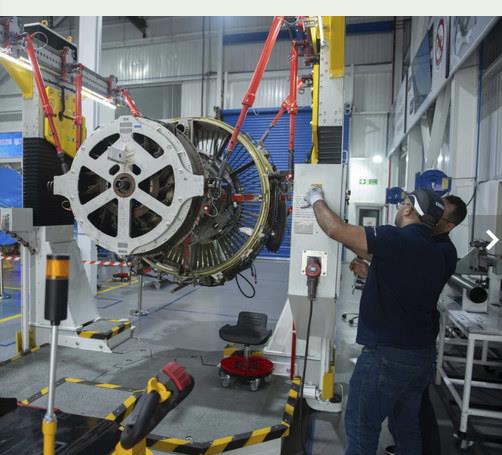
Britain’s factories are struggling to meet the record demand for their goods as severe supply constraints put a brake on production lines, the latest snapshot of activity has shown.
The Confederation of British Industry (CBI) said manufacturers were running down their stocks of finished goods to meet the strongest order books since records began in 1977.
In its monthly health check, the employers’ organisation expressed concern that the increase in demand was being accompanied by heightened inflationary pressure. Availability of finished goods was the weakest since 1977, while expectations of future price increases were at their highest.
Almost half (46%) of firms said order books were above normal, while 20% said they were below normal. Export order books were at their strongest since 2019, with 24% of firms saying they were above normal and 21% saying they were below.
Production has picked up to meet stronger demand from domestic and overseas markets as economies open up post-lockdown. The CBI said 38% of firms reported output had increased in the past three months against 21% that recorded a decline.
Anna Leach, the deputy chief economist at the CBI, said: “It’s good to see strong order books and output growth in the manufacturing sector holding up as we head into winter. Output growth has been steady for three months now and remains quicker than its long-run average.
“But intense supply side challenges continue to put pressure on firms’ capacity to meet demand. Alongside record order books, stock adequacy was the weakest on record in November and manufacturers are increasingly having to pass on significant cost increases to customers.”
Only 9% of firms were comfortable with their stocks levels, and 69% said they were likely to raise prices for their domestic customers in the next three months.
Leach said the strains on business showed the government was right to set up a supply chain taskforce to address acute challenges.
The CBI data is the latest evidence of mounting inflationary pressure and will fuel speculation that the Bank of England will raise interest rates at the next meeting of its monetary policy committee on 16 December.
Threadneedle Street left borrowing costs unchanged at a record low of 0.1% earlier this month but said they would be raised over the coming months if the jobs market remained strong.
Samuel Tombs, chief UK analyst at Pantheon Macro, said the CBI’s price expectations were consistent with an 8% annual increase in the cost of goods leaving factory gates by January.
The cost of manufactured goods leaving manufacturing plants are seen as a guide to prices in the shops a few months later. Tombs said 8% factory gate price inflation would mean consumer price inflation rising above 5% in the spring.












